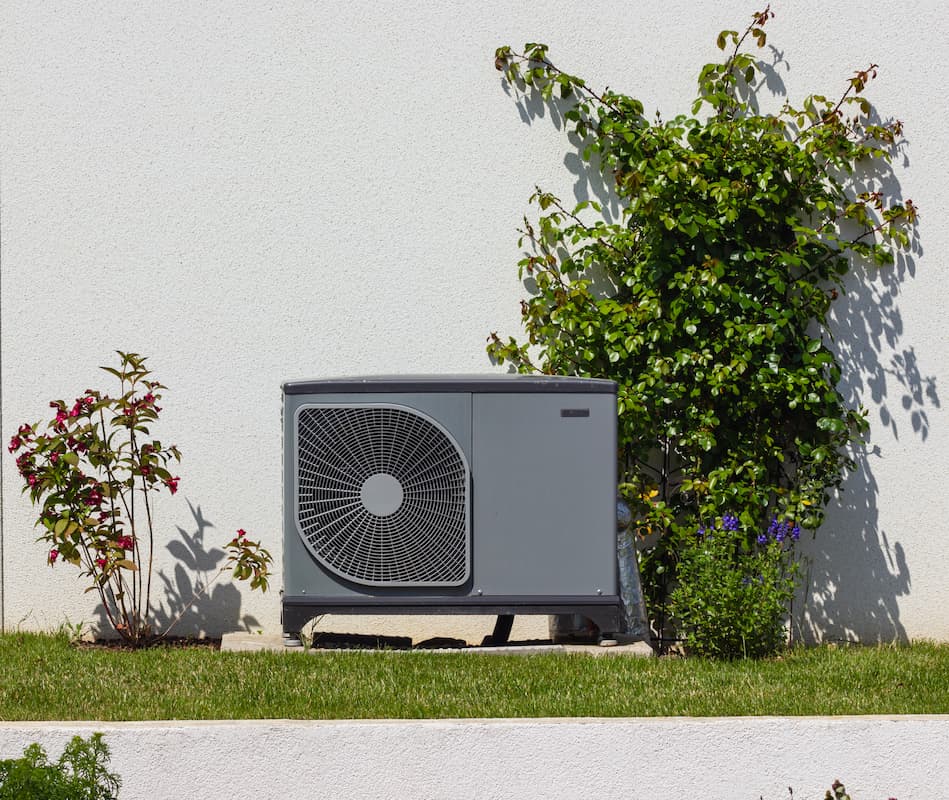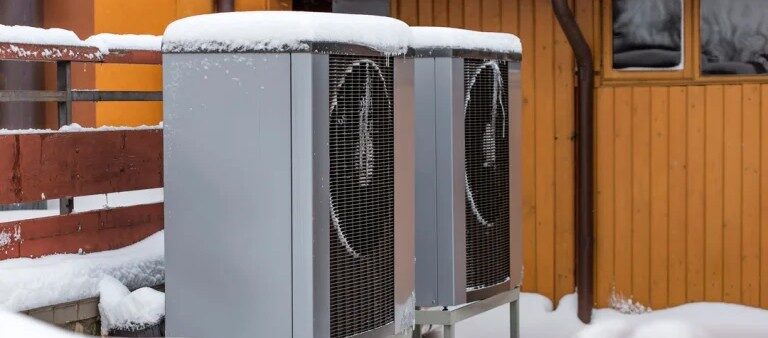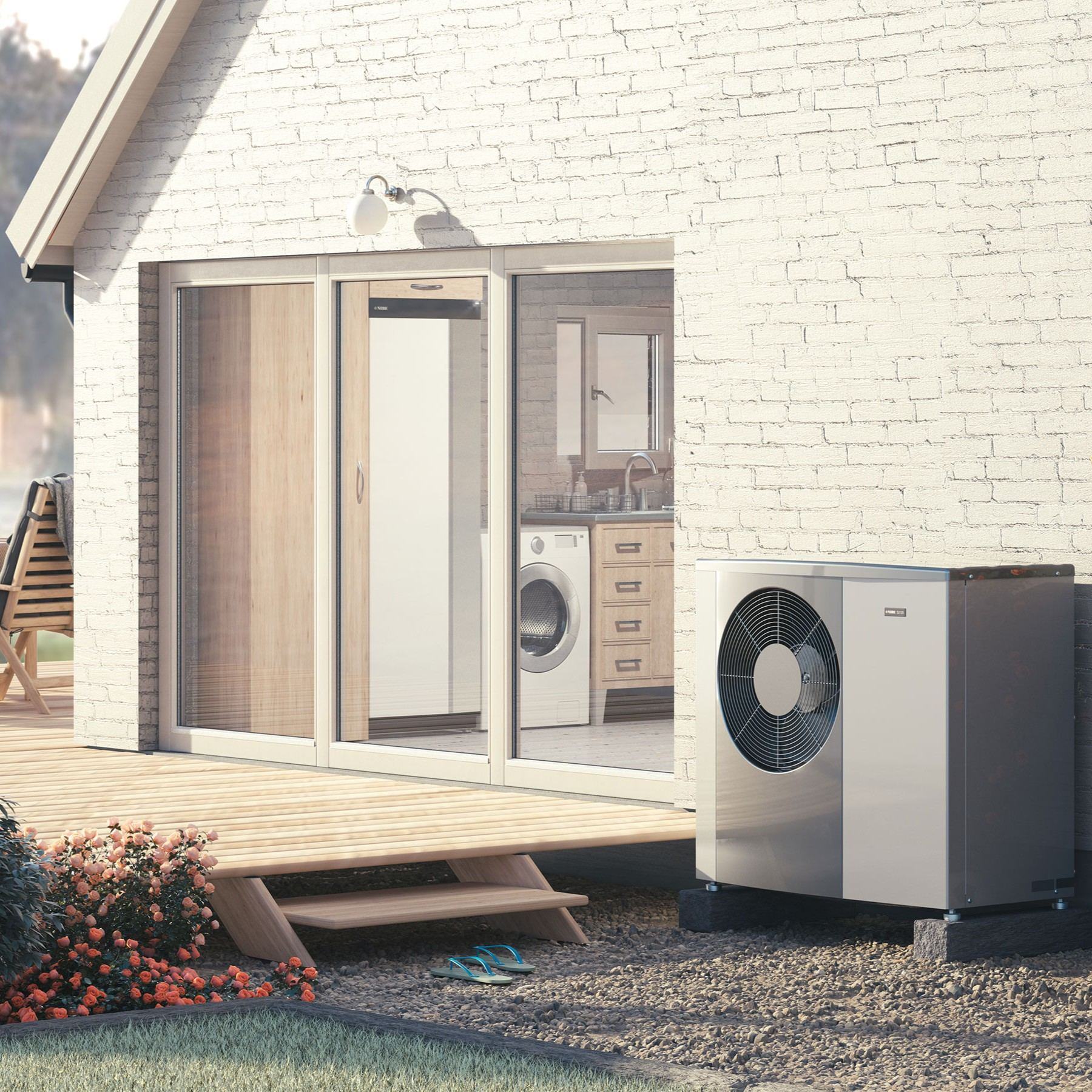Exploring the Disadvantages of Heat Pumps

Heat pumps have been hailed as an energy-efficient solution for home heating and cooling, but are they all they’re cracked up to be?
People often focus on the advantages of heat pumps, including their ability to preserve fossil fuels, heat and cool a property, and reduce carbon emissions. While these systems offer many benefits, they also come with their fair share of drawbacks.
In this article, we’ll take an honest look at the potential downsides of heat pumps. From installation costs to performance issues in extreme weather, we’ll explore the factors that might make you think twice.
Whether you’re considering a heat pump or just curious about the technology, join us as we uncover the less-discussed aspects of these popular systems.
1: Installation complexities
If you opt for an air-source heat pump, you can look forward to a convenient installation process. These heat pumps are suitable for most properties and go onto the building’s exterior, making them easy to install.
Ground-source and water-source heat pumps are more complicated, as your installation service will need to prepare the site. For example, ground-source heat pumps require a large outdoor space to accommodate horizontal pipes.
If you have a small garden, vertical boreholes are a possibility, but they’re even more complex. Water-source heat pumps require a nearby pond, river or lake, and your installation team will fit either an open or closed loop system.
2: Outright costs
Heat pumps offer ongoing savings. They reduce your reliance on artificial heating, lowering your energy bills. If you combine them with solar panels, you’ll generate even higher savings in the future.
Unfortunately, the outright costs can be steep, with the average heat pump costing at least £10,000. Air-source heat pumps are the most affordable option, but water and ground-source pumps cost more, as they’re harder to install.
A vertical borehole system for your GSHP could cost over £40,000. On a positive note, the government is offering a range of grants to households, including the Boiler Upgrade Scheme, which offers £7,500 towards the cost of your heat pump.
3: Higher electricity usage
Heat pumps can only produce heat or cool air for your property with an electricity source. Specialists estimate that a heat pump will take up to 25% of its energy from an electricity supply, which isn’t an issue for most households.
If you want to gain energy independence and reduce your reliance on the grid, solar panel installation is another wise investment. The panels will generate clean electricity to run your heat pump, making a combination the most energy-efficient solution.
4: Less reliable in the winter
One of the main reasons people avoid heat pumps is the belief that they won’t perform in the winter. However, both water and ground-source heat pumps offer year-round consistency, as they collect heat from stable temperatures.
Air-source heat pumps are the least reliable during colder months, but modern models are more capable of collecting and converting heat from the air.
While your heat pump will need to work harder in colder temperatures, it will still offer consistent heating for your property.
5: Space issues
Most properties have no problem fitting a heat pump, but terraced houses or small apartments have limited space. The heat pump you’re most interested in installing might not align with your property’s size and available space.
GSHPs
Horizontal ground-source heat pump systems require a minimum of 600 metres outside space, which is something that most households don’t have. Vertical systems are an option but more expensive, with many exceeding £40,000.
WSHPs
If you have a nearby water source, installing these pumps means you don’t need to worry about having a large garden. Your installation team will need to lay pipes and might suggest another option if the pond, river or lake is far away.
ASHPs
Air source heat pumps require the least space, as they have a compact design. You’ll need to consider whether there’s enough exterior space for optimal ventilation. We recommend having at least 0.5 metres of space on either side of the pump and 1.5 metres to the front.
Indoor units
Your heat pump can only work if there’s an indoor unit that can heat or cool the building. Most interior units are the same size as a hot water cylinder, so the majority of properties won’t have any issues installing them.
6: Worries about noise levels
A significant concern about heat pumps is their noise levels, with many households worrying about disturbing their neighbours. While older heat pumps were noisy, modern alternatives are designed for quiet operation.
Ground and water-source heat pumps are the quietest options, but air-source heat pumps won’t usually cause disruptions. Buying an ASHP from a reputable company means the maximum noise levels will reach 60 decibels, even when the heat pump is working overtime.
7: Maintenance needs
The average air-source heat pump can last over 20 years today, which means that you’re making a long-term investment. As with most appliances, your heat pump will need ongoing maintenance and services to evaluate whether it’s working correctly.
Common tasks include changing filters, assessing refrigerant levels and identifying leaks. In general, it’s easy to maintain an air-source heat pump, but speaking to a professional service and exploring available plans means you won’t need to worry about repairs.
The pros of heat pumps far outweigh the cons
Heat pumps might have some minor disadvantages, but technology will continue to advance, paving the way for households everywhere to install them. Here are just some of the many advantages heat pumps offer:
- They preserve fossil fuels and protect the environment
- Households can create clean energy instead of relying on the grid
- Heat pumps heat AND cool a property, reducing energy bills
- Households can access grants from the government that reduce the cost of heat pump installation
Ready to install a heat pump?
Heat pumps will continue to offer a range of benefits for residential and commercial properties. While there are some minor drawbacks, investing in a heat pump is a positive step forward.
Geowarmth offers a range of heat pumps, including innovative payment plans. Our clients receive excellent prices, ongoing support and a professional installation. Please get a quote today.


